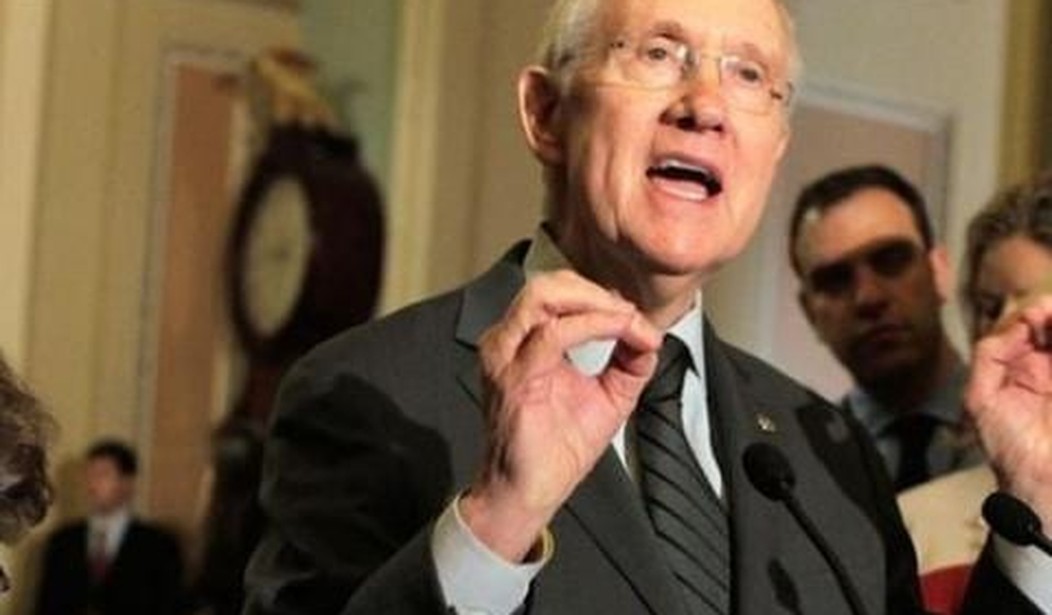WASHINGTON – The Senate is on the verge of a bipartisan agreement to reopen the federal government and stave off potential default but major hurdles remain – most particularly the House of Representatives.
Senate Democratic Leader Harry Reid, of Nevada, and Senate Republican Leader Mitch McConnell, of Kentucky, worked through most of Monday to arrive at a package both sides could live with. Concurrence on a blueprint is said to be near. And congressional staff still has to develop legislative language that passes muster.
According to several lawmakers close to the ongoing negotiations, the Senate will be asked to raise the nation’s debt ceiling to Feb. 7 and adopt a temporary spending bill to fund the federal government through Jan. 15. As part of the deal, the two factions will attempt to bang out a full spending and tax plan.
The agreement will also make a few minor changes to the Affordable Care Act, popularly known as Obamacare, the heart of the budget dispute that led to a partial governmental shutdown now in its second week. A provision sought by Republicans would establish stronger regulations to assure that those seeking subsidies to buy health insurance, as required by the law, are qualified. In exchange for meeting that Republican condition, Democrats are seeking a delay until 2015 of a tax on health insurance policies that is expected to add about $63 per individual to the cost beginning in January.
Reid recessed the Senate for the day Monday evening, meaning no action will be taken on any deal until Tuesday at the earliest. Time is of the essence since the Treasury Department’s authorization to borrow money to fund the federal government is expected to run dry Oct. 17 when it bumps up against the $16.7 trillion debt ceiling. President Obama warned again Monday that congressional failure to raise the debt ceiling would leave the government without the money necessary to pay its bills.
“This week, if we don’t start making some real progress, both the House and the Senate, and if Republicans aren’t willing to set aside their partisan concerns in order to do what’s right for the country, we stand a good chance of defaulting, and defaulting could have a potentially devastating effect on the economy,” Obama said while dealing out sandwiches at Martha’s Table, a Washington food bank.
Both Reid and McConnell expressed optimism during the day that some agreement could be reached.
“We have had an opportunity over the last couple of days to have some very constructive exchanges of views about how to move forward,” McConnell said. “Those discussions continue and I share [the] optimism that we’re going to get a result that will be acceptable to both sides.”
Talks were progressing so smoothly that an afternoon meeting involving the president, Reid, McConnell, House Speaker John Boehner (R-Ohio) and House Democratic Leader Nancy Pelosi, of California, was postponed so the parties could continue to work things out.
“We’ve made tremendous progress,” Reid said. “We are not there yet, but tremendous progress. And everyone just needs to be patient. Perhaps tomorrow will be a bright day.”
One major sticking point was the length of the temporary spending measure, known as a continuing resolution. One early GOP plan placed it at six weeks – basically until Thanksgiving, which Reid insisted wasn’t long enough. A proposal floated by Sen. Susan Collins (R-Maine) would have extended the continuing resolution for six months.
But Reid held out for, and succeeded in getting, a January deadline. Congressional Democrats have been hoping to negate the impact of sequestration, substantial budget cuts in both domestic and defense programs as called for in the Budget Control Act of 2011. The next round of sequestration cuts – amounting to $20 billion — are scheduled to take effect in January. Reid wants ample time to address the sequestration issue – longer than six weeks – but adopting the Collins proposal probably would have seen the cuts implemented before a budget deal could be reached, rendering it almost impossible to change course.
Still, it remains unclear if any deal reached in the Senate will be embraced by the Republican-controlled House, which has taken a much harder line than its Senate brethren in pushing for concessions in return for their support of a continuing resolution and a debt ceiling hike. The task of coming up with a plan was only left to the Senate when the House and Obama were unable to strike a bargain after several fitful attempts.
Should an agreement be reached in the Senate and a bill passed on to the lower chamber, the focus will immediately shift to Boehner who ultimately will decide how the package should be addressed.
Boehner has frequently maintained that a bill that doesn’t provide Republicans with some dispensation – lower spending levels, significant changes in Obamacare – will not make it through the House. He has instituted what is familiarly known as the Hastert rule after former House Speaker Denny Hastert, an Illinois Republican – only legislation that attracts the majority of the GOP caucus will be considered on the floor.
House Republicans won’t conduct a whip count until the Senate finalizes its package but it’s likely to attract more Democratic than Republican votes in the lower chamber. It will be left up to Boehner on how to proceed – he can, among other things, quickly bring it to the floor for a vote, amend it and send it back to the Senate or reject it and call for a time-consuming conference committee.
If he ditches the Hastert rule, which likely would expedite the process, the speaker will almost assuredly feel heat from his right flank with some Tea Party lawmakers calling for his ouster.
Initially House Republicans demanded a defunding of Obamacare in return for their support of a continuing resolution. The White House and Reid balked, leading to a partial government shutdown on Oct. 1 – the beginning of the new federal fiscal year.
Over the intervening days, the GOP has shifted tactics, first altering their ultimatum by simply seeking as year-long postponement of the healthcare law’s implementation. That also was rejected by Obama. Ultimately, the House abandoned its attack on the Affordable Care Act, completely, instead pushing for additional spending cuts. To this point their requests have fallen on deaf Democratic ears.
A vote in the Senate could be delayed if enough lawmakers get in the way, forming a filibuster to block a tally. Lawmakers will need 60 votes in the 100-member chamber to proceed. Sen. Ted Cruz (R-Texas), who has led the fight to defund Obamacare and seek additional White House concessions, hasn’t disclosed how he intends to proceed.









Join the conversation as a VIP Member